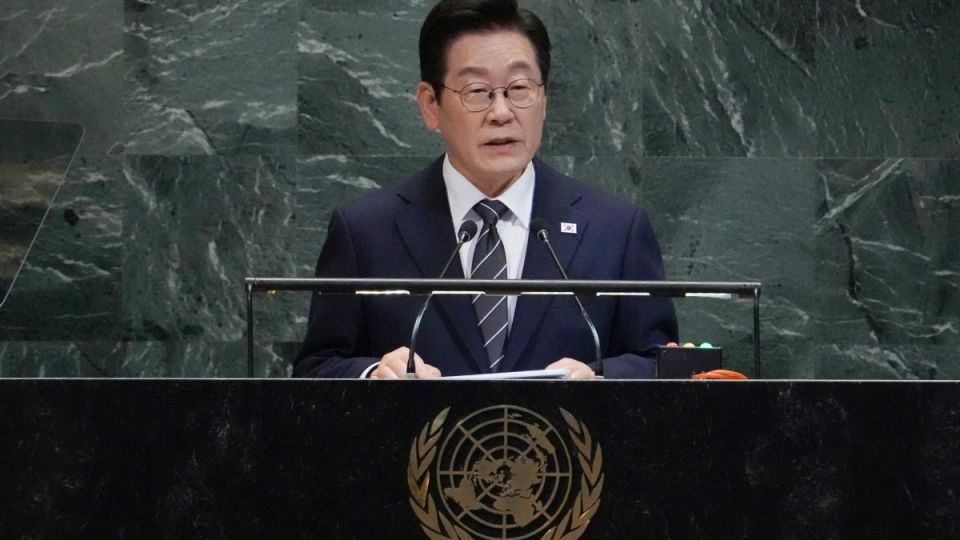September 24, 2025
NEW YORK – President Lee Jae Myung said in his speech at the United Nations General Assembly Tuesday that he would gradually move to increase inter-Korean economic exchanges and cooperation as a pathway to “sustainable” peace on the Korean Peninsula, stressing the need for “a realistic approach” grounded in the recognition that North Korea’s denuclearization cannot be achieved in the short term.
“The fact that exchanges and cooperation are a shortcut to peace is a timeless lesson demonstrated by the history of fraught inter-Korean relations,” Lee said in his speech.
“By gradually expanding inter-Korean exchanges and cooperation, we will pave the way for sustainable peace on the Korean Peninsula.”
Lee, a liberal president who was inaugurated in June, proposed a new initiative that involves inter-Korean exchange, normalization of ties and denuclearization to end inter-Korean hostility.
He also appealed for the international community’s support for peace on the Korean Peninsula, in line with his administration’s reconciliatory gestures, which he said Tuesday were needed to restore trust between the two Koreas and end the vicious cycle of military tensions. He underscored that South Korea would respect the North’s system, would not seek unification by absorption, and had no intention of engaging in hostile acts.
“Denuclearization (on the Korean Peninsula) is undoubtedly a grave task,” Lee said. “It is time to seek realistic and rational solutions based on a cool-headed perception that denuclearization cannot be achieved in the short term,” he said, urging the international community to gather wisdom to find “a pragmatic and phased solution.”
He also suggested a phased approach, beginning with a halt to the advancement of nuclear and missile capabilities, followed by reduction, and ultimately leading to dismantlement.
The South Korean leader’s remarks on North Korea policy came three days after Kim Jong-un, for the first time, signaled openness to meeting US President Donald Trump in his second term — on the condition that Washington takes denuclearization off the table.
In his policy address on Sunday, Kim unequivocally reiterated that North Korea would never relinquish its nuclear arsenal. He went further, threatening to use nuclear weapons, warning that if such a situation arose, they would “annihilate” military forces in South Korea and US-allied countries in the region.
Lee’s North Korea policy, presented at the UN, was widely seen as an effort to encourage Pyongyang’s return to dialogue, with Seoul ready to play a constructive role in the process.
Once the opposition leader when former President Yoon Suk Yeol was in office, until his imposition of martial law led to his ouster, Lee said Tuesday that South Korea could be a model for countries struggling to overcome crises in democracy.
Declaring that South Korea has completed its return to the international community, Lee said that South Korea, once a recipient of aid and support of the UN, “will not hesitate to take on the role of a leading nation, generously sharing its experience and history of restoring democracy.”
“When the people of South Korea raised colorful cheering sticks in the face of a crisis in democracy, I call on the international community and the United Nations to lift the lantern of hope that will light the future of humanity,” Lee said.
Highlighting that Lee chairs the UN Security Council’s open debate on the responsible use of artificial intelligence for the first time in South Korea’s history, Lee said in his speech that the adoption of AI could not only lay the foundation for a stronger direct democracy but also tackle global crises such as climate change.
“We will strive to ensure that the vision of ‘AI for all,’ where advances in cutting-edge technology contribute to the universal values of humanity, becomes the ‘new normal’ for the international community,” Lee said, adding that a new initiative related to AI will be unveiled at the upcoming APEC Economic Leaders’ Meeting that his country is to host in late October.
consnow@heraldcorp.com


